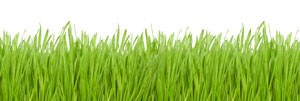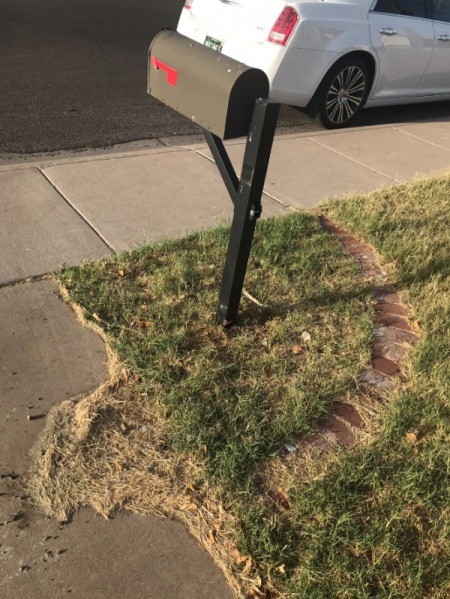
Hardiness Zone: 11
chphoea from Surabaya, Indonesia
Instead of killing the turf, why not remove it completely? If you are not worried about losing topsoil, consider renting a sod cutter for the afternoon. The cost of rental (if availability exists where you are) is usually quite reasonable and the effects are long lasting. Sod cutters leave a clean edge, removing the grass (roots and all) and the top 1 to 2 inches of soil. You'll be left with a 1-2 inch depression which can then be filled in with mulch, gravel or your medium of choice.
The sod can also be removed manually with a shovel, but this requires more "back power" and is not exactly easy. Also, if you need the topsoil to remain for your business (for example, growing food for a restaurant), or you have very little to spare in the first place, this method is probably not the best option.
Another option is to kill the grass by smothering it. This will take a lot more time (up to several months) and a bit of patience-especially to kill the roots. Mow the grass as short as possible and cover the area with dark plastic, corrugated cardboard, or a thick layer of newspaper or wood chips. In the end, this method will be just as effective as using chemicals or removing the sod completely.
Good luck!
Ellen
I can think of a couple of ideas presently. One is to use salt. I pour over my driveway to kill out unwanted grass at times and also cover the soil with plastic sheeting and anchor in place, but not very attractive.
Hi. Try pouring boiling water on the grass. It kills it without altering the soil and surroundings. Hope this helps.
First cut grass as short as possible. Than cover grass area with black plastic to smother grass. This will take several weeks (4-6). Once it is dead, I would recommend covering the area with a layer of wood chips 6 inches deep.
Vinegar
Best way I have found is to cover the grass with layers of newspaper. I wet the paper to keep it from blowing away. Then cover the wet newspapers with wood chips or pine straw. I took out my entire backyard, little by little, using this method. Try it, you'll like it! It does work best.
Yes Yes & Yes! The Ruth Stout No-Work Garden Book, copyright 1971:
Things can't grow without sun! She proposes a deep mulch over anything you don't want, in your case, grass!
I've shrunk my back yard grass to a small oval for the pets and outside that oval I have room for vegetables, shrubs and even a 20 ft privacy screen thicket of volunteer plants like African Sumac.
I left out the most important part: grass clippings (still have them from front yard & back yard oval) piled as much as a foot deep.
I agree with the wet newspaper idea. I have used it many times. Boiling water works for very small areas like cracks in the sidewalk.
Rent a couple of high school kids to do the work. Remove about 6-8 inches of topsoil and replace all of it with gravel. The only reason grass ever sprouts in gravel is that the gravel is too shallow. Any barrier product will block old weed seeds under it but they will all let weeds sprout and grow very well on top of the barrier.
I wish I had that problem. I have an area in our backyard that I can't keep grass growing! Send your grass this way! : )
Here are the questions asked by community members. Read on to see the answers provided by the ThriftyFun community.
What do you do if you want to kill grass under a mature tree so you can put ground cover in a big circle around the tree? Can one safely use black plastic that will deny water to the tree? Maybe use weed block? How long do you leave on whatever cover you use to kill the grass?
Hardiness Zone: 4a
By bill c. from Minneapolis, MN
You can use a weed killer spray and the next day it's usually brown. The grass will grow back eventually, but if you have the area worked up with a tiller or other tools after spraying and then plant your ground cover, it shouldn't over take the area.
May family calls me the "cardboard bandit". I collect heavy cardboard from the neighbors recycling bins and use it to make landscape beds. It works very well. Use a rope or old hose to mark the edge of your bed. Dig an edge for the bed, about 4" wide. Lay cardboard over the entire area, bending it about 4" at the edge, going into the area you have made for an edge. Make sure you overlap the cardboard so no light gets through. Cover the cardboard with compost and 3" of mulch. Wood chips / bark are best. I have used this method for 10 years. Every year add more mulch. Newspaper also works, but it must be lots of layers. The cardboard and mulch help the soil. My older beds are like peat moss with mulch on top. Almost no weeds, even after years.
Oh Please, do not use weedkiller. It kills living things, including your tree. The grass that dies under the cardboard method, become green manure.
If you wet the cardboard in a big plastic tub it is easier to place. It will conform to the ground and not blow away before you get mulch on it. I peel all the tape off boxes before I use them, as it does not decompose well. My tomatoes pulled through a drought this summer with cardboard, a couple inches of straw, and one supplemental watering! I don't bother with the trench when I begin, maybe later when I decide to put a permanent edge in a the soil has softened from the mulch.
In a couple years, when your ground cover covers things completely, you will probably not want to add much mulch. It will be too difficult to get it in there!
Do not till under trees, they usually have a lot of roots near enough to the surface that you can damage the tree. Also, those root are there in part for oxygen, so don't bury them too deeply with mulch, especially don't decide to make a huge raised bed and dump tons of topsoil there. The tree may not die immediately, but will decline.
Jadeibert, if you're going to be a tree hugger, go all the way. Cardboard commonly contains formaldehyde, a very nasty chemical. I'll take Roundup any day and it would not kill the tree. It's systemic and only travels through the root system of the grass being sprayed and is supposedly deactivated on contact with soil.
You can spray vinegar directly onto the grass, being careful not to get it on anything you don't want to kill, and avoid if possible getting on tree roots. They do not like it! This will turn the grass brown, and then you can get it up; however, if you want to, you can easily use a "twister" which loosens the soil, and makes it easy to remove the grass with the roots; shake the soil off of it, and then you can put whatever ground cover you wish under it. If you choose creeping thyme it will cover over and squeeze out any weeds and is lovely for the nose to smell!
I am living in an older home. The front yard is very large and gravel. By the mailbox at the corner are little bricks separating the two areas. Almost the entire mailbox area is overrun with grass and weeds as well as the area right on the other side of the separation bricks. I have not been able to get rid of them no matter what I try.
I've spent hours and hours digging as deep as possible to get the entire roots out. I've moved all the gravel away and dug them out. There are stray animals in the neighborhood and I'd prefer not to endanger them with chemicals so I tried more natural resolutions. Salt - I bought two big containers of regular salt and covered the area in it so much you could see all the white. It did nothing the grass and weeds still growing strong. Boiling water - I boiled gallons and gallons of water daily for three days and soaked the area repeatedly. Nothing. A few weeds wilted and turned yellow. White vinegar - I brought home 4 gallons of regular white vinegar and soaked the area with it so much that you could smell the vinegar when you walked by it. I'm pretty sure the weeds and grass just laughed at me and kept on growing. I've used the gardening fabric as well with no results. Thick mulch, too. I'm going crazy here. I want to really landscape the big yard, but it would all look ridiculous if the first eye catcher is this horrid little area. I need help please!
**In the picture is the mailbox and surrounding area. It looks like just grass, but actually there are rocks on the ground. The other pics are after I've attempted to get rid of the weeds and landscape the area. It doesn't matter what I've done though as the weeds have come back aggressively within days.
Vinegar will kill weeds and grass in unwanted areas.
So I accidentally killed a huge patch of my grass a few years ago by raking a large pile of leaves and then getting busy and not bagging them up for trash.
A few weeks later I had a big bald spot in my yard when I finally bagged up the leaves. It took reseeding to get my grass back.
If you have a bunch of leaves, pile them up and leave them for a few weeks where you want to kill the growth. My leaves were maples, but I am sure any would work.
I am thinking if you don't have leaves, maybe wet cardboard would have the same effect. Not esthetically pleasing, but it seems to suffocate the grass and weeds. No harm to the strays either.
I can't think of a weed treatment that you haven't tried but what about planting something other than the grass and weeds there? Perhaps a groundcover or even something that could twine up the mailbox. I would remove the sod and plant it with new soil, to ensure that you got all the grass roots up. If you plant a perennial, it will come back year after year.
Good luck and do let us know how it turns out.
Even if you used a commercial weed killer, the weeds would come back. So, no matter what household remedy you use, you can expect the weeds and grass to return. This is due to new weed and grass seed being constantly introduced to the area.
A couple layers of heavy gauge black plastic under whatever you're using, crushed bricks, pea gravel, whatever; will kill all roots underneath it. New weed and grass seed will not get a start. They cannot germinate without the proper environment.
I have a bank that is too steep to mow. Until I find a better solution, I keep black plastic on it. Nothing will grow under or through the plastic. Nothing!. It's unsightly but at least yours would be covered with something nice. And with the plastic being covered with something else, it should last a few years.